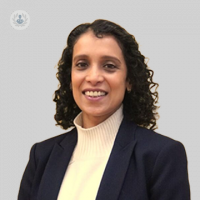A quick guide to menopause: How can I manage my symptoms?
Written in association with:In her latest online article, highly experienced menopause specialist Dr Ashlesha Dhairyawan offers her expert insight into menopause. She explains the age it typically starts, the signs, among many more interesting points.

What age does menopause typically start?
Menopause typically starts between the ages of 45 and 55, with the average age of onset being around 51 years. However, it can occur earlier or later for some women.
What are the signs of menopause?
The signs and symptoms of menopause can vary among individuals, but common indicators include:
- Irregular periods: Menstrual cycles may become shorter or longer, and periods may be heavier or lighter.
- Hot flushes: Sudden feelings of warmth, often accompanied by sweating and flushing of the face and upper body.
- Night sweats: Hot flushes that occur during sleep, leading to excessive sweating and disrupted sleep patterns.
- Vaginal dryness: Decreased lubrication in the vaginal area, which can cause discomfort or pain during sexual intercourse.
- Sleep disturbances: Difficulty falling asleep, staying asleep, or experiencing restless sleep.
- Memory symptoms: Brain fog, lack of concentration and difficulty remembering people’s names.
- Mood changes: Hormonal fluctuations can contribute to mood swings, irritability, anxiety, panic attacks or feelings of sadness.
- Changes in sexual function: Some women may experience a decrease in libido.
- Weight gain: Changes in hormone levels can affect metabolism and lead to weight gain, particularly around the abdomen.
- Urinary changes: Increased frequency of urination or urinary incontinence.
How can menopause affect my sex life?
Menopause can affect a woman's sex life in several ways. The decrease in oestrogen levels can cause vaginal dryness, thinning of the vaginal walls, and reduced elasticity, making intercourse uncomfortable or painful. These changes can also result in decreased libido or a decreased desire for sexual activity. Additionally, hormonal fluctuations can lead to mood swings and fatigue, which may impact sexual interest.
What helps with menopause?
Hormone replacement therapy (HRT) is a common approach that involves the use of oestrogen or a combination of oestrogen and progesterone to alleviate menopause symptoms. Testosterone is an additional treatment that women may benefit from. However, it is important to remember that HRT is not suitable for everyone and should be discussed with a healthcare provider, considering individual health factors and risks.
Other non-hormonal medications, such as selective serotonin reuptake inhibitors (SSRIs) or low-dose antidepressants, may also be prescribed to manage specific symptoms like hot flushes and mood changes.
It's important to consult with a healthcare professional who can provide personalised guidance based on your specific needs and medical history.
Dr Ashlesha Dhairyawan is a renowned menopause specialist with over 20 years of experience. If you would like to book a consultation with Dr Dhairyawan, you can do so today via her Top Doctors profile.


